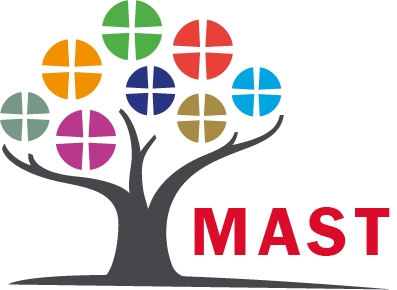Christian Distinctiveness
All Methodist schools belong to the wider family of the Methodist Church. For the last 300 years (almost!), Methodists have been living out their faith by serving in the community – our work in schools is just one of the ways we try to do this*. Our hope is that our schools will be communities shaped by Christian values which are good both for the individual child and for the common good of our society and the wider world.
Of course, not everyone in our schools is a Methodist or, maybe, a Christian. So we try to express our Christian ethos in ways with which people can make common cause:
- we believe that all people matter and that they should know that they matter, so our schools should be places of excellent pastoral care
- we believe that people have huge potential and that schools should be places where there is opportunity for everyone to flourish, so our schools should be places with an inspiring curriculum and lots of opportunities beyond the classroom
- we believe that who you are becoming is as important as what you are achieving – that means both of them very important indeed! And that our schools should be places where children learn good values as well as good ‘stuff’
- we know that life can be tough and that things don’t always go how we’d like – our schools should be places where people develop the strength to face life’s challenges and are supported to deal with the things that come along.
Research suggests that church schools are particularly successful because the school community gathers together under a clearly defined ethos – the school’s non-negotiables. In a Methodist school we hope you would see:
- that people try to do all the good they can, whenever, wherever, however and to whoever they can. ‘Do all the good you can’ was a favourite saying of our founder, John Wesley – because we believe that God is good and the more the world is good then the more it is God’s.
- that our schools are inclusive and welcoming communities. One of Charles Wesley’s hymns (he was John’s little brother) says that God’s goodness is for all, not just for some. No ifs, no buts.
- that children are developed to ‘live on a wider map’. The whole world and all its people are God’s and, in an age of globalisation we believe children can only benefit from sharing John Wesley’s view, ‘I look upon the whole world as my parish’
- that our schools take a positive and inspirational approach to the curriculum. Wesley wrote books on science and medicine and believed people should be free to follow their intellectual curiosity without limitation
- that, while being open to all beliefs and none, our schools are places where we take the possibility that there is a God seriously; that we want children to think for themselves about life’s big questions and believe that 2000 years of Christian thinking about life’s meaning and purpose is worthy of our consideration.
To find out more about our Christian ethos, you might like to look at the following:
- The Methodist Church’s report on education, Transforming Lives.
- The SIAMS reports on our schools across the country.
- The SIAMS inspection document on ‘what to look for in a Methodist school’
- Our Methodist Schools video, ‘Doing all the good we can’ on Youtube
*Did you know that Methodism does not just have churches and schools? Methodist Homes is the biggest social care provider in the country and Action for Children is one of the biggest charities caring for vulnerable children. In fact, the Methodist Church is very much involved with issues of welfare, justice and peace.
